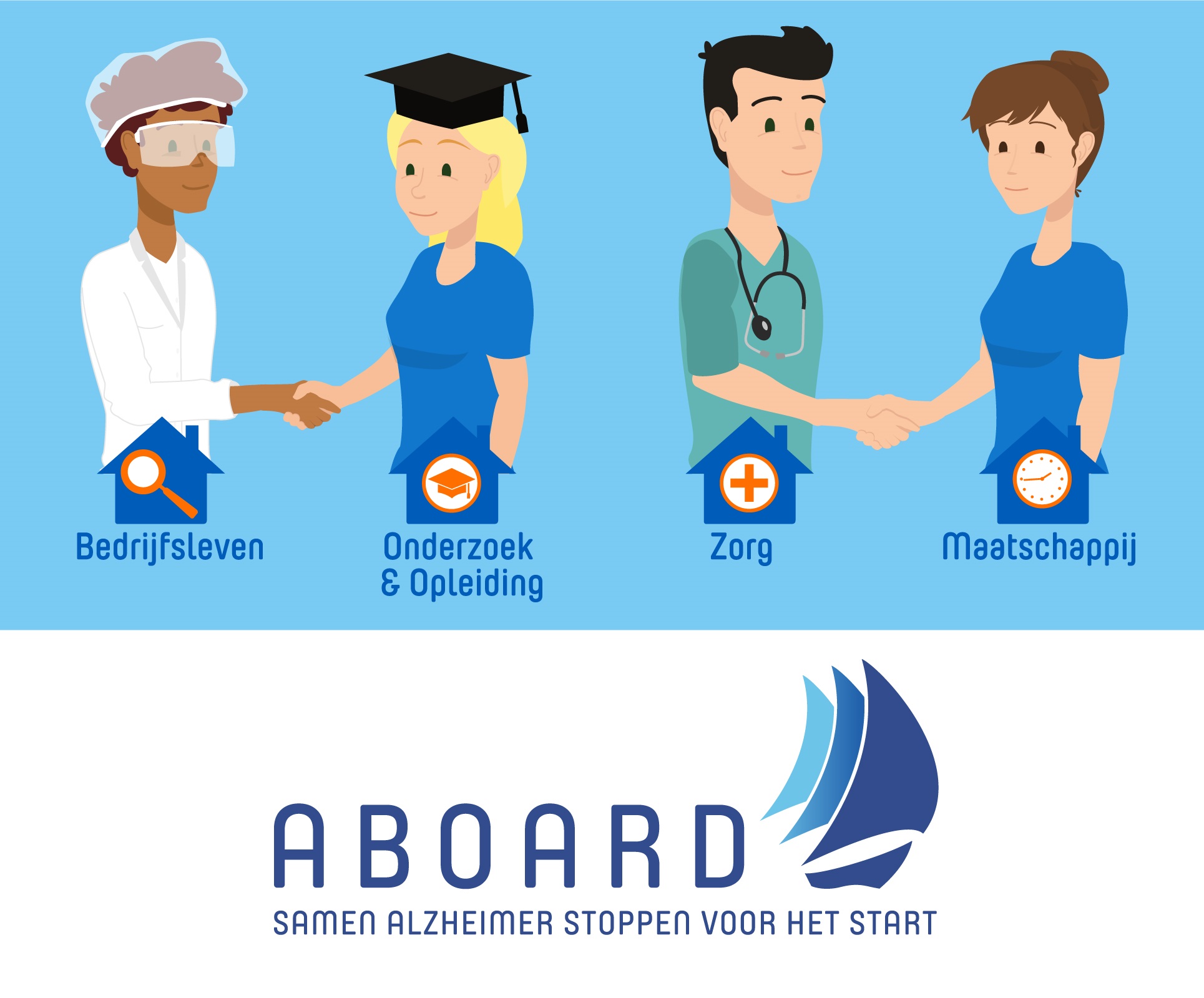Stopping Alzheimer’s before it starts
'Stopping Alzheimer’s before it starts' is the slogan of a new, nationwide, collaborative project in the Netherlands. ABOARD, short for “A personalized medicine approach for Alzheimer’s disease”, is a public-private project which aims to prepare for a future in which Alzheimer’s disease is stopped before the onset of dementia. The Alzheimer Centrum Limburg, a leader in research into the influence of lifestyle on the prevention of dementia, is one of the participants.
The aim of the project is to improve timely and accurate diagnosis, develop individualized risk profiles, initiate a nationwide data collection with a focus on patient reported outcomes, and a focus on prevention strategies by creating awareness around dementia and brain health. In addition, readiness of the Dutch healthcare system for disease modifying treatment is evaluated. The ABOARD-project has a duration of 5 years.
Prevention is key
ABOARD takes as a starting point the fact that Alzheimer’s disease develops over a period of over twenty years. ABOARD therefore focusses on the stages before onset of dementia, working towards prevention. In addition, Alzheimer’s disease is highly heterogeneous, both in underlying biology and specific pathways involved, and in needs and preferences of patients and their care partners. The wishes and needs of patients should be the starting point of care and ABOARD develops (e)tools to support patient-orchestrated care. Realizing that one size does not fit all, ABOARD envisions a future with individualized prevention encompassing tailored combinations of lifestyle and disease modifying interventions.
In the ABOARD-project, over 30 partners representing the entire translational value chain work together. Partners include the five Dutch Alzheimer centres, Alzheimer Nederland and partners from academic and applied research, healthcare, private, semi-private and public organizations, all dedicated to achieve personalized medicine for Alzheimer’s disease.
More information can be found on the website: www.aboard-project.nl, or simply watch this short animation video.
Also read
-
Patients admitted to hospital due to a severe COVID-19 infection exhibit no evidence of brain damage caused by the disease. This is the conclusion of an extensive study led by Maastricht University.
-
Due to the Western lifestyle with a high fat diet combined with little exercise, more and more people in the Netherlands are overweight or even obese. This causes an increased risk of type II diabetes. What can be done about this besides a healthier lifestyle? The answer comes from an unexpected...
-
Survivors of colon cancer often have symptoms associated with the cancer or treatment for years after treatment, such as fatigue and tingling in fingers and feet. This has a great impact on the perceived quality of life. Whereas current lifestyle advice is mainly aimed at prevention of (colon)...



